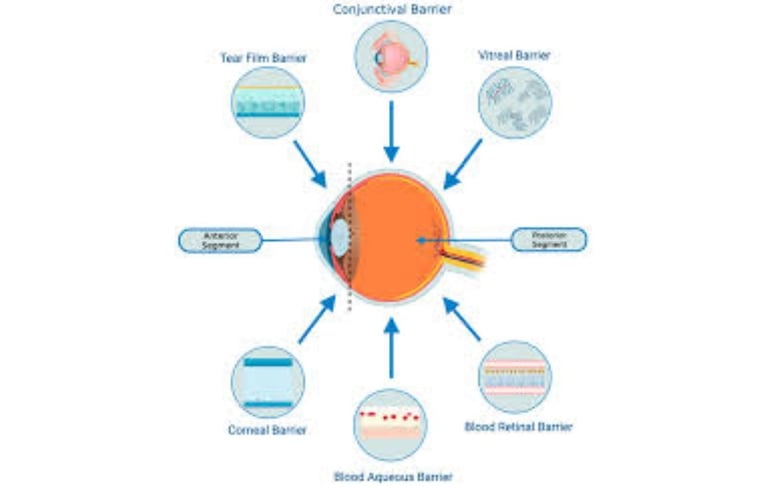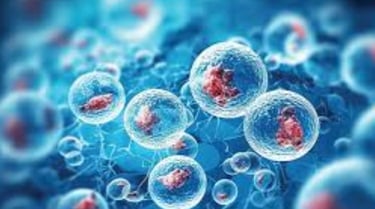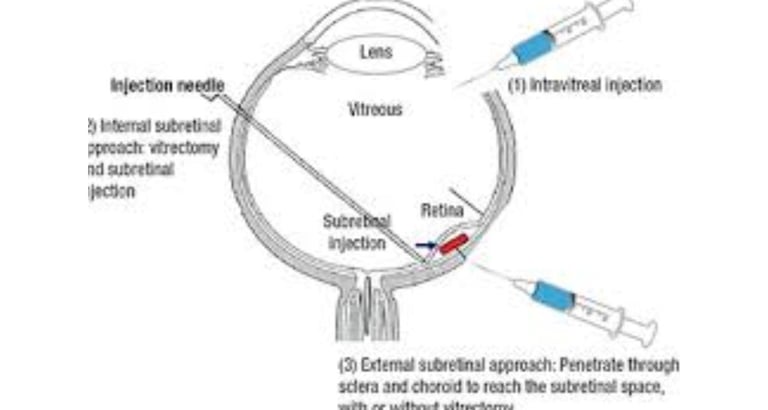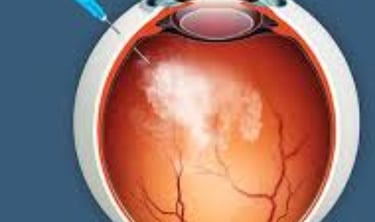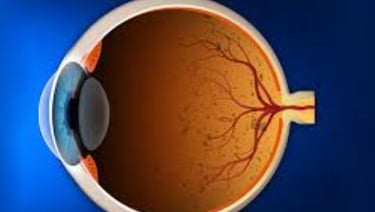
Health is a crown on the heads of the healthy that only the sick can see.

🧬👁️ Retinitis Pigmentosa: Fasting & Emerging Therapies
Explore the relationship between retinitis pigmentosa, fasting, and autophagy. Discover how stem cells and emerging therapies may offer hope for those affected by this genetic eye disorder.
GENERAL
Dr Hassan AlWarraqi
1/18/20256 min read
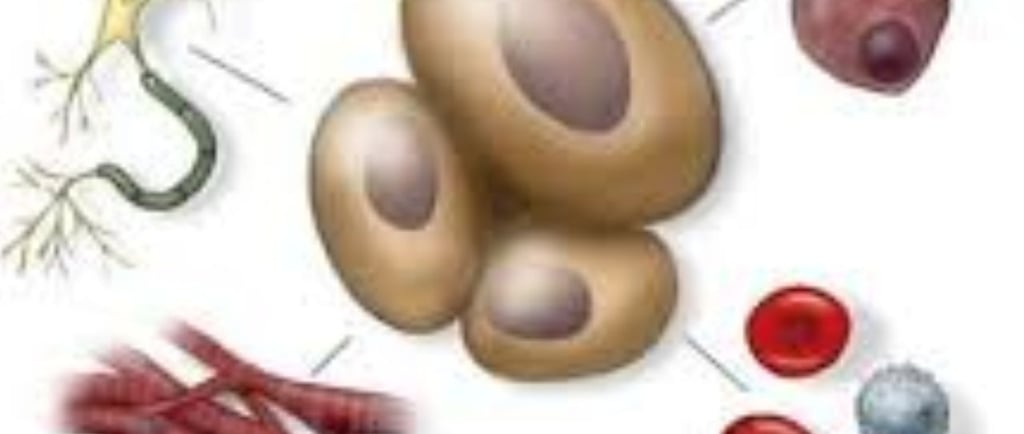

🧬👁️ Retinitis Pigmentosa: Fasting & Emerging Therapies
Explore the relationship between retinitis pigmentosa, fasting, and autophagy. Discover how stem cells and emerging therapies may offer hope for those affected by this genetic eye disorder.
Retinitis Pigmentosa (RP) is a group of rare genetic eye disorders that cause progressive degeneration of the retina, the light-sensitive layer at the back of the eye.
This condition primarily affects rod photoreceptor cells, responsible for night and peripheral vision, and can eventually damage cone cells, leading to central vision loss.
This article provides a detailed overview of RP, including its causes, symptoms, diagnosis, treatment options, and the latest research on fasting, autophagy, oxidative stress, and stem cell therapy.
What is Retinitis Pigmentosa?
- Definition: RP is a hereditary condition caused by mutations in nearly 100 genes, leading to the gradual breakdown of retinal cells and vision loss.
- Inheritance: RP can be inherited in autosomal dominant, autosomal recessive, or X-linked patterns. In some cases, only one parent needs to carry the gene for the condition to manifest.
- Prevalence: RP affects approximately 1 in 4,000 people worldwide.
Causes of Retinitis Pigmentosa
- Genetic Mutations: Mutations in genes responsible for retinal cell function disrupt the retina's ability to process light.
- Drug-Induced Retinopathy: Certain medications, such as antimalarials (e.g., hydroxychloroquine) and phenothiazines, can damage the retinal pigmented epithelium, mimicking RP symptoms.
Symptoms of Retinitis Pigmentosa
- Early Symptoms:
- Night blindness (difficulty seeing in low light or darkness).
- Loss of peripheral vision (tunnel vision).
- Progressive Symptoms:
- Gradual reduction in central vision.
- Blurriness and blind spots.
- Difficulty navigating in dimly lit environments.
- Advanced Stages:
- Severe vision loss or legal blindness (central visual field less than 20 degrees in diameter).
- Early-onset cataracts and macular edema.
Diagnosis of Retinitis Pigmentosa
- Clinical Evaluation:
- Dilated eye exam to detect pigment deposits in the retina.
- Visual field testing to assess peripheral vision loss.
- Electroretinography (ERG) to measure retinal cell function.
- Genetic Testing:
- Identifies specific gene mutations responsible for RP.
- Conducted by a licensed genetic counselor.
Treatment Options for Retinitis Pigmentosa
- No Cure: Currently, there is no cure for RP, but several strategies can slow progression and improve quality of life:
- Vitamin A Palmitate: May slow disease progression in some patients.
- Low Vision Aids: Devices like magnifiers and portable lighting solutions.
- Vision Rehabilitation: Training in orientation and mobility.
- Gene Therapy: Approved for specific forms of RP, such as Leber congenital amaurosis type 2.
- Visual Prostheses: Implantable devices for severe cases.
Complications of Retinitis Pigmentosa
- Progressive vision loss, often leading to legal blindness by age 40.
- Increased risk of cataracts and macular edema.
- Emotional and psychological challenges due to vision impairment.
Emerging Research and Therapies for RP
1. Fasting and Autophagy
- Fasting: Intermittent fasting can stimulate autophagy, a cellular process that removes damaged components and supports cell survival.
- Autophagy in RP: Enhances the clearance of damaged photoreceptor cells and reduces oxidative stress, potentially slowing disease progression.
- Potential Benefits: Fasting regimens (e.g., 3-4 days per week) may help preserve retinal cells and improve outcomes.
2. Oxidative Stress
- Role in RP: Excessive reactive oxygen species (ROS) damage photoreceptor cells, contributing to retinal degeneration.
- Antioxidant Therapies: Investigated as potential treatments to mitigate oxidative damage.
3. Stem Cell Therapy
- Potential: Stem cells can differentiate into photoreceptor cells, offering hope for retinal regeneration.
- Challenges: Ensuring survival, integration, and functionality of transplanted cells in the retina.
- Progress: Ongoing research aims to refine stem cell delivery methods and improve outcomes.
4. Interconnection of Mechanisms
- Fasting-induced autophagy may reduce oxidative stress and support stem cell survival.
- Oxidative stress can impair stem cell function, highlighting the need for antioxidant therapies.
- Autophagy plays a role in regulating stem cell differentiation and photoreceptor cell survival.
Age of Blindness in RP
- RP is typically diagnosed in childhood or adolescence.
- Progression varies, but many individuals become legally blind by age 40.
- Central vision loss and tunnel vision are common in advanced stages.
Conclusion
Retinitis Pigmentosa is a complex genetic eye disorder with no cure, but advancements in research offer hope for slowing progression and restoring vision.
Key areas of focus include:
- Fasting and Autophagy: Potential to reduce oxidative stress and support retinal cell survival.
- Stem Cell Therapy: Promising for regenerating damaged photoreceptor cells.
- Oxidative Stress Management: Antioxidant therapies may complement existing treatments.
While challenges remain, understanding the interplay between fasting, autophagy, oxidative stress, and stem cells could pave the way for innovative therapies to combat RP.
Patients and researchers are encouraged to explore these avenues, particularly fasting regimens, as part of a comprehensive treatment plan.
Retinitis pigmentosa (RP) is a hereditary eye disorder caused by genetic mutations in nearly 100 genes, leading to the progressive degeneration of retinal cells, often resulting in night blindness, tunnel vision, and eventual legal blindness by age 40.
Diagnosis involves genetic testing, electroretinography, and retinal assessments, Though incurable, treatments include low vision aids, vitamin A palmitate, gene therapy, and visual prostheses,
Research explores fasting, which induces autophagy to recycle damaged cells, reducing oxidative stress that worsens RP, and stem cell therapy to regenerate photoreceptor cells, These interconnected approaches aim to slow progression and restore vision,
References
1. [NCBI - Autophagy and Oxidative Stress in Retinal Diseases](https://www.ncbi.nlm.nih.gov/pmc/articles/PMC6070619/)
2. [Springer - Stem Cell Therapy for Retinal Degeneration](https://link.springer.com/chapter/10.1007/978-1-4615-1897-6_1)
3. [Nature - Mechanisms of Retinitis Pigmentosa](https://www.nature.com/articles/4400210.pdf)
4. [ScienceDirect - Antioxidant Therapies in RP](https://www.sciencedirect.com/science/article/pii/S0098299721000984)
5. [Medscape - Retinitis Pigmentosa Overview](https://emedicine.medscape.com/article/1227488-overview)
faqs frequently asked questions about Retinitis Pigmentosa (RP)
Q1: What is Retinitis Pigmentosa (RP)?
A: Retinitis Pigmentosa (RP) is a genetic eye disorder that causes progressive vision loss. The disease affects the photoreceptor cells in the retina, which are responsible for converting light into signals that the brain can understand.
Over time, these cells die, leading to impaired vision and eventual blindness.
Q2: What are the symptoms of Retinitis Pigmentosa?
A: The symptoms of Retinitis Pigmentosa vary from person to person but typically include:
- Difficulty seeing at night (night blindness).
- Gradual narrowing of the visual field, leading to "tunnel vision."
- Loss of color vision.
- Difficulty adjusting to changes in lighting.
- Seeing spots or flashes of light.
Q3: Is there a cure for Retinitis Pigmentosa?
A: Unfortunately, there is currently no cure for Retinitis Pigmentosa. However, there are treatments that can help slow the progression of the disease and improve quality of life, such as:
- Special sunglasses to protect the eyes from harmful UV rays.
- Low vision aids, such as magnifying lenses and night vision glasses.
- Vision rehabilitation to help patients adapt to vision loss.
Q4: What is the latest research on Retinitis Pigmentosa treatment?
A: There are many promising studies exploring new treatments for Retinitis Pigmentosa, including:
- Gene Therapy: Aims to replace the defective genes causing the disease.
- Stem Cell Therapy: Uses stem cells to create new photoreceptor cells.
- Fasting: Some studies suggest that fasting may have a positive effect on slowing disease progression.
Q5: Is fasting beneficial for Retinitis Pigmentosa patients?
A: Some preliminary research suggests that fasting may have a positive effect on slowing the progression of Retinitis Pigmentosa. However, these studies are still in their early stages, and more research is needed to confirm these findings and understand the underlying mechanisms.
Q6: What are the risks and benefits of fasting for Retinitis Pigmentosa patients?
A: The risks and benefits of fasting for Retinitis Pigmentosa patients are not yet fully clear. Fasting may interact with certain health conditions, so it is important for patients to consult their healthcare provider before starting any fasting regimen.
Q7: Where can I find additional information about Retinitis Pigmentosa?
A: You can find additional information about Retinitis Pigmentosa through:
- National Retinitis Pigmentosa Associations: These organizations provide information about the disease, the latest research, and support groups.
- Trusted Medical Websites: Such as the National Institutes of Health (NIH) and the World Health Organization (WHO).
- Scientific Journals: The latest research on Retinitis Pigmentosa is published in peer-reviewed scientific journals.
Q8: What should I do if I am concerned about having Retinitis Pigmentosa?
A: If you are concerned about having Retinitis Pigmentosa, it is important to consult an ophthalmologist. The doctor will perform a comprehensive eye exam to determine if you have the disease or any other conditions that may affect your vision.
